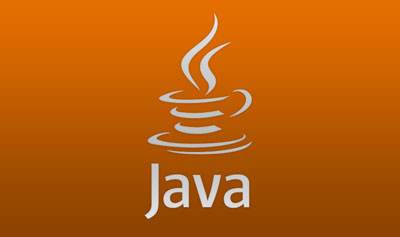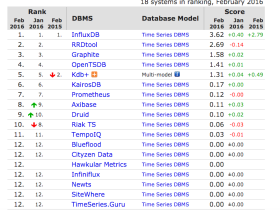1 Batch
Preparedstatements可以解决sql注入,可以大大提升性能,只编译一次。
2 JdbcTemplate
- As we know, it is meaningless to execute batch query,There is only batchUpdate provided in JdbcTemplate.
/** * @param sql defining an array of SQL statements that will be executed. */ public int[] batchUpdate(final String[] sql); /** * @param sql defining PreparedStatement that will be reused. * @param pss object to set parameters on the PreparedStatement */ public int[] batchUpdate(String sql, final BatchPreparedStatementSetter pss); /** * @param sql the SQL statement to execute * @param batchArgs the List of Object arrays containing the batch of arguments for the query */ public int[] batchUpdate(String sql, List<Object[]> batchArgs); /** * @param sql the SQL statement to execute. * @param batchArgs the List of Object arrays containing the batch of arguments for the query * @param argTypes SQL types of the arguments */ public int[] batchUpdate(String sql, List<Object[]> batchArgs, int[] argTypes); /** * @param sql the SQL statement to execute. * @param batchArgs the List of Object arrays containing the batch of arguments for the query * @param batchSize batch size * @param pss ParameterizedPreparedStatementSetter to use */ public <T> int[][] batchUpdate(String sql, final Collection<T> batchArgs, final int batchSize, final ParameterizedPreparedStatementSetter<T> pss);
package edu.xmu.jdbc.dao;
import java.sql.PreparedStatement;
import java.sql.SQLException;
import java.util.ArrayList;
import java.util.List;
import org.springframework.jdbc.core.BatchPreparedStatementSetter;
import org.springframework.jdbc.core.JdbcTemplate;
import org.springframework.jdbc.core.ParameterizedPreparedStatementSetter;
import org.springframework.jdbc.core.support.JdbcDaoSupport;
import edu.xmu.jdbc.bean.Student;
public class BatchDao extends JdbcDaoSupport {
public int[] batchExecution() {
JdbcTemplate jdbcTemplate = getJdbcTemplate();
String sql = "update student set name='aaa' where id=1";
String sql2 = "update student set name='bbb' where id=2";
String sql3 = "update student set name='ccc' where id=3";
final String[] sqls = new String[] { sql, sql2, sql3 };
return jdbcTemplate.batchUpdate(sqls);
}
public int[] batchCreate(final List<Student> studentList) {
JdbcTemplate jdbcTemplate = getJdbcTemplate();
String sql = "insert into student(name, age) values(?, ?)";
int[] updateCounts = jdbcTemplate.batchUpdate(sql,
new BatchPreparedStatementSetter() {
public void setValues(PreparedStatement ps, int i) throws SQLException {
Student student = studentList.get(i);
ps.setString(1, student.getName());
ps.setInt(2, student.getAge());
}
public int getBatchSize() {
return studentList.size();
}
});
return updateCounts;
}
public int[] batchCreate2(final List<Student> studentList) {
JdbcTemplate jdbcTemplate = getJdbcTemplate();
String sql = "insert into student(name, age) values(?, ?)";
List<Object[]> batchArgs = new ArrayList<Object[]>();
for (Student student : studentList) {
String name = student.getName();
int age = student.getAge();
Object[] objects = new Object[] { name, age };
batchArgs.add(objects);
}
return jdbcTemplate.batchUpdate(sql, batchArgs);
}
public int[] batchCreate3(final List<Student> studentList) {
JdbcTemplate jdbcTemplate = getJdbcTemplate();
String sql = "insert into student(name, age) values(?, ?)";
List<Object[]> batchArgs = new ArrayList<Object[]>();
for (Student student : studentList) {
String name = student.getName();
int age = student.getAge();
Object[] objects = new Object[] { name, age };
batchArgs.add(objects);
}
return jdbcTemplate.batchUpdate(sql, batchArgs, new int[] {
java.sql.Types.VARCHAR, java.sql.Types.INTEGER });
}
public int[][] batchCreate4(final List<Student> studentList) {
JdbcTemplate jdbcTemplate = getJdbcTemplate();
String sql = "insert into student(name, age) values(?, ?)";
List<Object[]> batchArgs = new ArrayList<Object[]>();
for (Student student : studentList) {
String name = student.getName();
int age = student.getAge();
Object[] objects = new Object[] { name, age };
batchArgs.add(objects);
}
return jdbcTemplate.batchUpdate(sql, studentList, studentList.size(),
new ParameterizedPreparedStatementSetter<Student>() {
public void setValues(PreparedStatement ps, Student student)
throws SQLException {
ps.setString(1, student.getName());
ps.setInt(2, student.getAge());
}
});
}
}
package edu.xmu.jdbc.dao;
import java.util.ArrayList;
import java.util.List;
import org.junit.After;
import org.junit.Before;
import org.junit.Test;
import org.springframework.jdbc.datasource.DriverManagerDataSource;
import edu.xmu.jdbc.bean.Student;
public class BatchDaoTest {
private DriverManagerDataSource dataSource;
private String url = "jdbc:mysql://localhost:3306/jdbctest";
private String username = "root";
private String password = "root";
private BatchDao dao;
@Before
public void setUp() {
dataSource = new DriverManagerDataSource(url, username, password);
dataSource.setDriverClassName("com.mysql.jdbc.Driver");
dao = new BatchDao();
dao.setDataSource(dataSource);
}
@Test
public void batchCreateTest() {
List<Student> studentList = new ArrayList<Student>();
Student student = new Student("Davy", 24);
studentList.add(student);
student = new Student("Jones", 25);
studentList.add(student);
int[] rowCounts = dao.batchCreate(studentList);
System.out.println("start batchCreateTest");
for (int i : rowCounts) {
System.out.println(i + " row affected.");
}
}
@Test
public void batchCreate2Test() {
List<Student> studentList = new ArrayList<Student>();
Student student = new Student("Davy", 24);
studentList.add(student);
student = new Student("Jones", 25);
studentList.add(student);
int[] rowCounts = dao.batchCreate2(studentList);
System.out.println("start batchCreate2Test");
for (int i : rowCounts) {
System.out.println(i + " row affected.");
}
}
@Test
public void batchCreate3Test() {
List<Student> studentList = new ArrayList<Student>();
Student student = new Student("Davy", 24);
studentList.add(student);
student = new Student("Jones", 25);
studentList.add(student);
int[] rowCounts = dao.batchCreate3(studentList);
System.out.println("start batchCreate3Test");
for (int i : rowCounts) {
System.out.println(i + " row affected.");
}
}
@Test
public void batchCreate4Test() {
List<Student> studentList = new ArrayList<Student>();
Student student = new Student("Davy", 24);
studentList.add(student);
student = new Student("Jones", 25);
studentList.add(student);
int[][] rowCounts = dao.batchCreate4(studentList);
System.out.println("start batchCreateTest");
for (int i = 0; i < rowCounts.length; i++) {
int[] list = rowCounts[i];
for (int j = 0; j < list.length; j++) {
int count = list[j];
System.out.println("Batch " + i + " execute. " + count + " row affected.");
}
}
}
@After
public void tearDown() {
}
}
Comments:
Still have some question about the ParameterizedPreparedStatementSetter approach.
Why it will return int[][] instead of int[]?
- SimpleJdbcTemplate provided an additional approach for batchUpdate
public int[] batchUpdate(String sql, SqlParameterSource[] batchArgs);
As we can see, we can pass a list of SqlParameterSource as batch parameters.
And now since SimpleJdbcTemplate is depreciated, we still can not find alternative method in JdbcTemplate, And why?
package edu.xmu.jdbc.dao;
import java.util.List;
import org.springframework.jdbc.core.namedparam.SqlParameterSource;
import org.springframework.jdbc.core.namedparam.SqlParameterSourceUtils;
import org.springframework.jdbc.core.simple.SimpleJdbcDaoSupport;
import org.springframework.jdbc.core.simple.SimpleJdbcTemplate;
import edu.xmu.jdbc.bean.Student;
@SuppressWarnings("deprecation")
public class SimpleBatchDao extends SimpleJdbcDaoSupport {
public int[] batchCreate(List<Student> studentList) {
String sql = "insert into student(name, age) values(:name, :age)";
SimpleJdbcTemplate simpleJdbcTemplate = getSimpleJdbcTemplate();
SqlParameterSource[] paramSources = SqlParameterSourceUtils
.createBatch(studentList.toArray());
return simpleJdbcTemplate.batchUpdate(sql, paramSources);
}
}
package edu.xmu.jdbc.dao;
import java.util.ArrayList;
import java.util.List;
import org.junit.After;
import org.junit.Before;
import org.junit.Test;
import org.springframework.jdbc.datasource.DriverManagerDataSource;
import edu.xmu.jdbc.bean.Student;
public class SimpleBatchDaoTest {
private DriverManagerDataSource dataSource;
private String url = "jdbc:mysql://localhost:3306/jdbctest";
private String username = "root";
private String password = "root";
private SimpleBatchDao dao;
@Before
public void setUp() {
dataSource = new DriverManagerDataSource(url, username, password);
dataSource.setDriverClassName("com.mysql.jdbc.Driver");
dao = new SimpleBatchDao();
dao.setDataSource(dataSource);
}
@Test
public void batchCreateTest() {
List<Student> studentList = new ArrayList<Student>();
Student student = new Student("Davy", 24);
studentList.add(student);
student = new Student("Jones", 25);
studentList.add(student);
int[] rowCounts = dao.batchCreate(studentList);
System.out.println("start batchCreateTest");
for (int i : rowCounts) {
System.out.println(i + " row affected.");
}
}
@After
public void tearDown() {
}
}
- BatchUpdate and auto-generated keys.
Still, we may wonder that how can we get the auto-generated keys when execute batchUpdate?
Sadly, there is no provided solution for this.<See ref-link-2>
Reference Links:
2) http://stackoverflow.com/questions/6272272/batchsqlupdate-how-to-get-auto-generated-keys testify that there is no auto-generated key fetching solution. Also, it offers a good solution solving this.
文章末尾固定信息

















